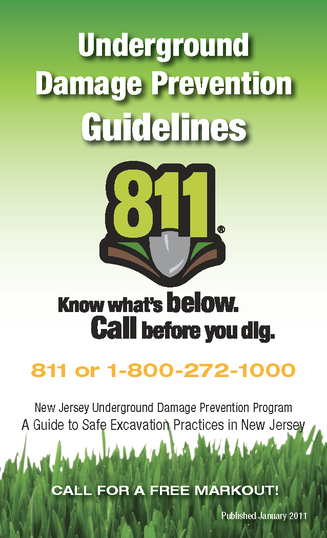Choosing a Contractor

Often this office is asked questions such as “who would you recommend for the work I have to do” or “Is this contractor OK”. The questions place our staff in a very difficult situation. We are unable to recommend or guide consumers in their choice of contractors. We all feel obligated to serve the residents of Winfield to the best of our ability. However our legal obligation as Licensed Code Enforcements professionals does not allow us to give the answers that you would like to hear.
The same holds true for contractor / consumer disputes. Our office is sometimes asked to take sides and mediate in disputes between parties. Our position is constant: if the work is in compliance with the code we cannot become involved. Legal code compliance, contractual obligation and purchaser expectations may vastly differ. These matters are civil in nature and should be handled accordingly.
The bottom line is BUYER BEWARE. You need to do your homework before you have work done in your home. Take steps to prevent being misled or deceived, select a contractor whom you can trust with your most valuable asset.
Here is a list of things you should investigate prior to entering into an agreement with a contractor. Keep it for future reference.
Do not allow the contractor to start any work before a construction permit has been issued and is on the job site. If the contractor is willing to work without a permit he or she has something to hide. Obtaining permits is the legal responsibility of the homeowner. Failure to obtain a permit is subject to a penalty of $2,000.00. Most of the time a contractor will work with you to obtain the permits.
Be sure that your agreement states that final payment will not be presented until a Certificate of Approval or Occupancy is obtained from the Construction Official. This is for your protection and is required by NJ state law.
As you can see, choosing a contractor is a little more than going to the yellow pages and letting your fingers do the walking. You need to do some research and find the best contractor for you and your project.
You may be able to obtain additional information from the NJ Division of Consumer Affairs regarding Home Improvement Practices.
The same holds true for contractor / consumer disputes. Our office is sometimes asked to take sides and mediate in disputes between parties. Our position is constant: if the work is in compliance with the code we cannot become involved. Legal code compliance, contractual obligation and purchaser expectations may vastly differ. These matters are civil in nature and should be handled accordingly.
The bottom line is BUYER BEWARE. You need to do your homework before you have work done in your home. Take steps to prevent being misled or deceived, select a contractor whom you can trust with your most valuable asset.
Here is a list of things you should investigate prior to entering into an agreement with a contractor. Keep it for future reference.
- Does the contractor have a permanent business location and a good reputation?
- How long has he or she been in business?
- Is the contractor a member in good standing of a professional trade association?
- CHECK REFERENCES. It’s important that you talk with people who have hired the contractor to do similar jobs to yours and ask if they would hire the contractor again.
- Have you seen the contractor’s work both in progress and completed?
- Does the contractor have proof of worker’s compensation and general liability insurance? If not, you may be liable for any construction related accidents on your property or damage to property caused by an accident.
- Price drives the selection. If you like the contractor and are confident with his or her work, but they came in with a bid which is beyond your price, ask what can be scaled down to meet your budget.
- Are you able to communicate easily with the contractor? Misunderstandings during the course of the project can lead to cost overruns and delays.
- Do you feel comfortable with the contractor? Remember, you will be in close contact with them and will share your house with their crew until the project is complete.
- Will the contractor provide you with a complete and clearly written contract as required by NJ law?
- Ask what type of warranty is offered. Most contractors offer some sort of warranty in writing.
Do not allow the contractor to start any work before a construction permit has been issued and is on the job site. If the contractor is willing to work without a permit he or she has something to hide. Obtaining permits is the legal responsibility of the homeowner. Failure to obtain a permit is subject to a penalty of $2,000.00. Most of the time a contractor will work with you to obtain the permits.
Be sure that your agreement states that final payment will not be presented until a Certificate of Approval or Occupancy is obtained from the Construction Official. This is for your protection and is required by NJ state law.
As you can see, choosing a contractor is a little more than going to the yellow pages and letting your fingers do the walking. You need to do some research and find the best contractor for you and your project.
You may be able to obtain additional information from the NJ Division of Consumer Affairs regarding Home Improvement Practices.
Emergency Repairs
When a condition occurs that affects the environmental conditions of an occupied space, that condition may be considered an emergency repair.
The replacement of a furnace or hot water heater is an example of an emergency repair. When this occurs, you are required to notify the building department PRIOR to beginning the emergency repair. Once given the approval to begin by the building department, you are required to submit a permit for the work within 72 hours of the notification.
The permit must be paid for and released within 5 days of the approval, and inspections must immediately be scheduled. Inspections are still required for the work performed. Any trenches that may have been dug must remain open until the inspection is performed. The work is the emergency, not the inspection process.
The replacement of a furnace or hot water heater is an example of an emergency repair. When this occurs, you are required to notify the building department PRIOR to beginning the emergency repair. Once given the approval to begin by the building department, you are required to submit a permit for the work within 72 hours of the notification.
The permit must be paid for and released within 5 days of the approval, and inspections must immediately be scheduled. Inspections are still required for the work performed. Any trenches that may have been dug must remain open until the inspection is performed. The work is the emergency, not the inspection process.
